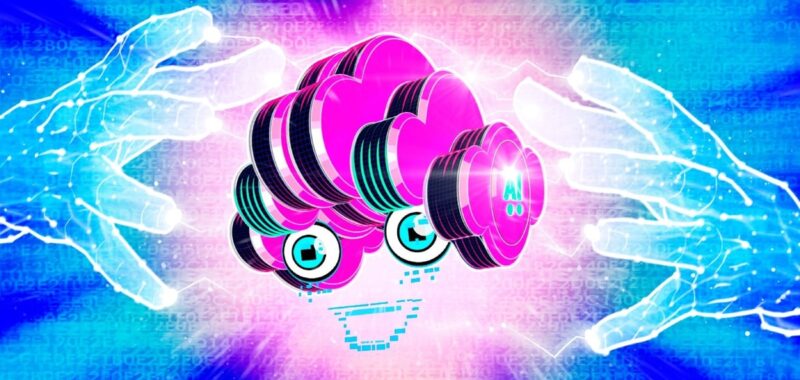Opinion by: Zain Jaffer, co-founder of Vungle
Artificial intelligence is the latest frontier in the centralization vs. decentralization battle. As Bitcoin and Ethereum were built to resist government and corporate control, so are crypto AI projects pushing back against Big Tech’s growing dominance over AI models.
The question is: Can they compete, or are they just another layer built on top of the same centralized infrastructure they claim to disrupt?
AI, crypto and the decentralization dilemma
One of the core tenets that drives traditional fans of crypto is decentralization. It directly opposes the US Securities and Exchange Commission’s Howey test, which defines investment contracts as relying on a “common enterprise” and the “efforts of others” for profit. Most securities are tied to centralized corporations, but Bitcoin, Ethereum and other sufficiently decentralized networks are designed to function without a central authority.
Why does this matter? Because of control. The Bitcoin white paper famously describes a “purely peer-to-peer” system that enables transactions without going through a financial institution. This Libertarian ideal (two parties transacting freely without interference) has driven crypto’s evolution.
As AI becomes more and more mainstream, the same decentralization ethos is extending to it. Crypto advocates worry that AI, if left in the hands of a few tech giants, will become another walled garden controlled by companies like Google, Microsoft and OpenAI.
Crypto’s AI push
To counteract this, blockchain-based AI projects are emerging. Names like Tao, Virtuals (on Base) and AI16Z (on Solana) have launched decentralized AI models, hoping to disrupt the industry before Big Tech entirely takes over. Some are building their own large language models (LLMs) from scratch and training them independently from corporate AI giants.
The challenge? Data.
Training an AI model necessitates huge loads of high-quality data. While crypto AI teams can scrape the open web, they still lack access to proprietary enterprise data sets. With their deep integrations into corporate workflows, tech giants have a significant edge here. That means fully decentralized AI teams are inherently disadvantaged by slower progress, weaker models and less adoption.
Recent: DeepSeek — a wake-up call for responsible innovation and risk management
Conversely, some crypto AI teams take a different approach: leveraging existing centralized AI infrastructure rather than building their models. They use APIs from OpenAI, Microsoft Copilot or Google Gemini, effectively acting as a decentralized front end for centralized AI backends. While this allows them to launch quickly, it raises the question: Are they truly decentralized or just another layer of dependency on Big Tech?
The cost factor
Beyond decentralization, there’s also the issue of cost. Developers would agree that there’s a tolerance threshold for some level of AI hallucinations as long as it’s feasible to affordably run experiments and iterate. But with US-based AI providers, costs quickly add up. Closed-source models like OpenAI force developers into a pay-to-play structure — regardless of output quality.
Enter DeepSeek.
In late January 2025, this China-based AI startup disrupted the landscape by unveiling a smaller, highly efficient LLM that reportedly matches ChatGPT’s performance while using significantly fewer compute resources. Unlike the billion-dollar arms race in the US (where OpenAI’s $500-billion Stargate initiative dominates headlines), DeepSeek built its model on a mere $6-million budget — a stark contrast that sent shockwaves through AI and crypto markets.
What DeepSeek means for crypto AI
Some crypto AI teams have already started integrating DeepSeek as an alternative to US-based AI models. If DeepSeek maintains a truly open-source approach, it could lower costs for AI teams and enable faster innovation. Decentralization purists, however, face a dilemma. While DeepSeek may reduce reliance on US tech giants, it introduces a new dependency on China, a country known for strict government oversight of AI development.
This raises concerns beyond cost. Will DeepSeek be as censorship-resistant as crypto AI advocates hope? Or will its limitations on content and responses deter potential enterprise users? A decentralized AI model that restricts what it can say still carries elements of centralized control, just from a different authority.
What’s ahead?
DeepSeek represents a significant shift in AI accessibility, but it’s not a silver bullet. Questions remain about its training data, performance consistency and long-term viability. However, early signs suggest it could be an essential alternative for emerging AI startups, including those in crypto.
The fight for AI decentralization is far from over. While blockchain-based AI teams push for greater autonomy, they must balance ideals with real-world trade-offs. Fully decentralized AI is still in its infancy, and whether it can genuinely compete with Big Tech remains to be seen.
Opinion by: Zain Jaffer, co-founder of Vungle
This article is for general information purposes and is not intended to be and should not be taken as legal or investment advice. The views, thoughts, and opinions expressed here are the author’s alone and do not necessarily reflect or represent the views and opinions of Cointelegraph.

